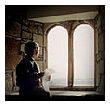Home »
Posts Tagged "555"
Posted by Anne on Jun 17, 2014 in Writing | 5 comments
I knew something was seriously wrong when I couldn’t find the keys.
Not the keys to my house, but the keys the Holy Spirit gives us to unlock the door of destiny. Every other part of an entrance makes its appearance in Paul’s description of the Armour of God so, by my reckoning, keys should be there as well.
The words for door and threshold both turn up without any mask or disguise. Thureos, the word for shield, comes from the Greek for door while belos, the word for fiery darts, is identical to belos for threshold. They’re not hard to identify. In addition, there are transparent allusions to pillars or doorposts, hinge, lintel, gate and mezuzah (the memorial box devout Jews affix to their doorways), some of which we’ve already looked at in this series.
But no keys.
read more
Posted by Anne on Jun 11, 2014 in Writing | 12 comments
Has God ever told you to do something so strange you doubted your own mind?
Some years ago I was researching material for a novel set west of Alice Springs. Although I’d lived in Alice for several months a decade ago, I wanted to refresh my memory of the area.
Enter Google Earth.
As I was panning around, I zoomed in on an area just north of those ‘painted caterpillars’ which form the MacDonnell Ranges. Suddenly I felt an immensely strong compulsion to pray God’s will would be done at one unnamed hill near the junction of two remote outback roads.
It was a stupendously strong feeling, the like of which I’ve never encountered before or since. To pray for a smudge of a flyspeck in the middle of nowhere? Sure, I knew God is interested even in the fall of a sparrow but why would He be interested in a hill without a name in a place where almost no one goes?
read more
Posted by Anne on Sep 17, 2013 in Writing | 0 comments
In her compelling book Permission to Speak Freely, Anne Jackson says this: ‘The Pharisees knew the Messiah was coming. They knew people needed a Saviour. They just didn’t believe they were the ones needed saving. This quote from The Prodigal God has been haunting me: “Pharisees only repent of their sins but Christians repent for the very roots of their righteousness too.”’
Now this was the only statement that, in an otherwise superb book, took me completely aback. I sincerely hope that, in context, the quote from The Prodigal God comes across differently. I’d be disturbed to find righteousness and self-righteousness had effectively collapsed into each other and that, for many of us, there is no longer any functional difference between them.
Christians repenting of righteousness suggests a deep core illness in the modern mindset. When we start to equate righteousness and self-righteousness, the spiritual zeitgeist has gone too far: it has started to deify Mercy. We’ve actually started to make a god out of Grace.
This is just as bad as deifying Righteousness—and that’s what the Pharisees’ problem really was: they had elevated Righteousness to the Godhead and seen that as the totality of His being. Depending on the century, the prevailing culture, our own personal inclination, we are apt to do this with other attributes of God’s nature: honour, integrity, truth, love, peace, order.
read more
Posted by Anne on Jun 13, 2013 in Naming, Reviews, Writing | 5 comments
It took me about five lessons to realise Hebrew language studies were not for me. The lecturer finally asked a question I could answer. It had to do with the first seven words of Genesis:
bereshit bara Elokim et hashamaim v’et haarets
He asked what the fourth word signified.
At last! Something I actually knew. I stuck up my hand.
The two-letter combination alef-tav in Genesis 1:1 is invariably untranslated. It occurs often throughout Scripture without any remark but nevertheless it has a profound meaning. The word is comprised of the first letter of the Hebrew alphabet, alef, and the last, tav. It’s the equivalent to the Greek combination of alpha and omega.
However, in Hebrew it’s more than ‘the first and the last’: alef-tav encompasses all 20 letters between these two and every combination of letter. In other words: every word that has ever existed or could possibly exist.
read more

